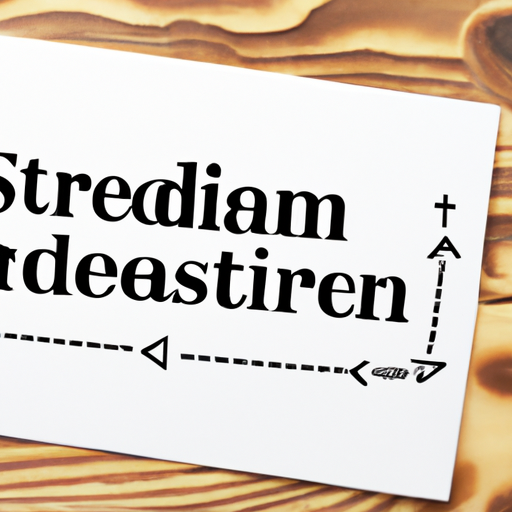

Title: The Mainstream Dedicated Production Process: A Comprehensive Overview

1. Understanding the Mainstream Dedicated Production Process: The mainstream dedicated production process is a method that focuses on producing a single product or a limited range of products in large quantities. It involves dedicating specific resources, such as machinery, equipment, and labor, exclusively to the production of these products. This approach allows for increased efficiency, reduced costs, and improved quality control.
2. Key Features of the Mainstream Dedicated Production Process: a. Specialized Equipment and Machinery: The process requires specialized machinery and equipment tailored to the specific product or product range. This ensures optimal production efficiency and quality. b. Skilled Workforce: A dedicated production process demands a skilled workforce trained to operate the specialized machinery and maintain consistent quality standards. c. Standardized Production: The process emphasizes standardization, ensuring that each product meets predetermined specifications and quality requirements. d. Economies of Scale: By producing large quantities of a single product, businesses can benefit from economies of scale, reducing production costs and increasing profitability.
3. Benefits of the Mainstream Dedicated Production Process: a. Increased Efficiency: By focusing on a single product or product range, businesses can optimize their production processes, resulting in improved efficiency and reduced lead times. b. Cost Reduction: Economies of scale, combined with streamlined processes, lead to cost reductions in areas such as raw materials, labor, and maintenance. c. Quality Control: With a dedicated production process, businesses can implement stringent quality control measures, ensuring consistent product quality and customer satisfaction. d. Flexibility: Despite its focus on a single product, the mainstream dedicated production process allows for flexibility in adapting to market demands and introducing product variations.
4. Challenges of the Mainstream Dedicated Production Process: a. Market Volatility: Relying heavily on a single product or product range can make businesses vulnerable to market fluctuations and shifts in consumer preferences. b. Initial Investment: Implementing a dedicated production process requires significant upfront investment in specialized machinery, equipment, and workforce training. c. Limited Product Range: While the process offers efficiency and cost advantages, it may limit businesses' ability to diversify their product offerings.
5. Industries Benefiting from the Mainstream Dedicated Production Process: a. Automotive: The automotive industry often employs dedicated production processes to manufacture specific vehicle models or components. b. Electronics: Companies producing electronic devices, such as smartphones or laptops, can benefit from the dedicated production process to meet high demand efficiently. c. Fast-Moving Consumer Goods (FMCG): FMCG companies utilize dedicated production lines to produce popular products in large quantities, ensuring availability and reducing costs.
Conclusion: The mainstream dedicated production process offers numerous advantages, including increased efficiency, cost reduction, and improved quality control. While it may present challenges such as market volatility and limited product range, businesses in various industries can benefit from this production method. By understanding its key features and benefits, companies can make informed decisions about implementing the mainstream dedicated production process to enhance their competitiveness and drive success in today's dynamic market.
Title: The Mainstream Dedicated Production Process: A Comprehensive Overview

1. Understanding the Mainstream Dedicated Production Process: The mainstream dedicated production process is a method that focuses on producing a single product or a limited range of products in large quantities. It involves dedicating specific resources, such as machinery, equipment, and labor, exclusively to the production of these products. This approach allows for increased efficiency, reduced costs, and improved quality control.
2. Key Features of the Mainstream Dedicated Production Process: a. Specialized Equipment and Machinery: The process requires specialized machinery and equipment tailored to the specific product or product range. This ensures optimal production efficiency and quality. b. Skilled Workforce: A dedicated production process demands a skilled workforce trained to operate the specialized machinery and maintain consistent quality standards. c. Standardized Production: The process emphasizes standardization, ensuring that each product meets predetermined specifications and quality requirements. d. Economies of Scale: By producing large quantities of a single product, businesses can benefit from economies of scale, reducing production costs and increasing profitability.
3. Benefits of the Mainstream Dedicated Production Process: a. Increased Efficiency: By focusing on a single product or product range, businesses can optimize their production processes, resulting in improved efficiency and reduced lead times. b. Cost Reduction: Economies of scale, combined with streamlined processes, lead to cost reductions in areas such as raw materials, labor, and maintenance. c. Quality Control: With a dedicated production process, businesses can implement stringent quality control measures, ensuring consistent product quality and customer satisfaction. d. Flexibility: Despite its focus on a single product, the mainstream dedicated production process allows for flexibility in adapting to market demands and introducing product variations.
4. Challenges of the Mainstream Dedicated Production Process: a. Market Volatility: Relying heavily on a single product or product range can make businesses vulnerable to market fluctuations and shifts in consumer preferences. b. Initial Investment: Implementing a dedicated production process requires significant upfront investment in specialized machinery, equipment, and workforce training. c. Limited Product Range: While the process offers efficiency and cost advantages, it may limit businesses' ability to diversify their product offerings.
5. Industries Benefiting from the Mainstream Dedicated Production Process: a. Automotive: The automotive industry often employs dedicated production processes to manufacture specific vehicle models or components. b. Electronics: Companies producing electronic devices, such as smartphones or laptops, can benefit from the dedicated production process to meet high demand efficiently. c. Fast-Moving Consumer Goods (FMCG): FMCG companies utilize dedicated production lines to produce popular products in large quantities, ensuring availability and reducing costs.
Conclusion: The mainstream dedicated production process offers numerous advantages, including increased efficiency, cost reduction, and improved quality control. While it may present challenges such as market volatility and limited product range, businesses in various industries can benefit from this production method. By understanding its key features and benefits, companies can make informed decisions about implementing the mainstream dedicated production process to enhance their competitiveness and drive success in today's dynamic market.